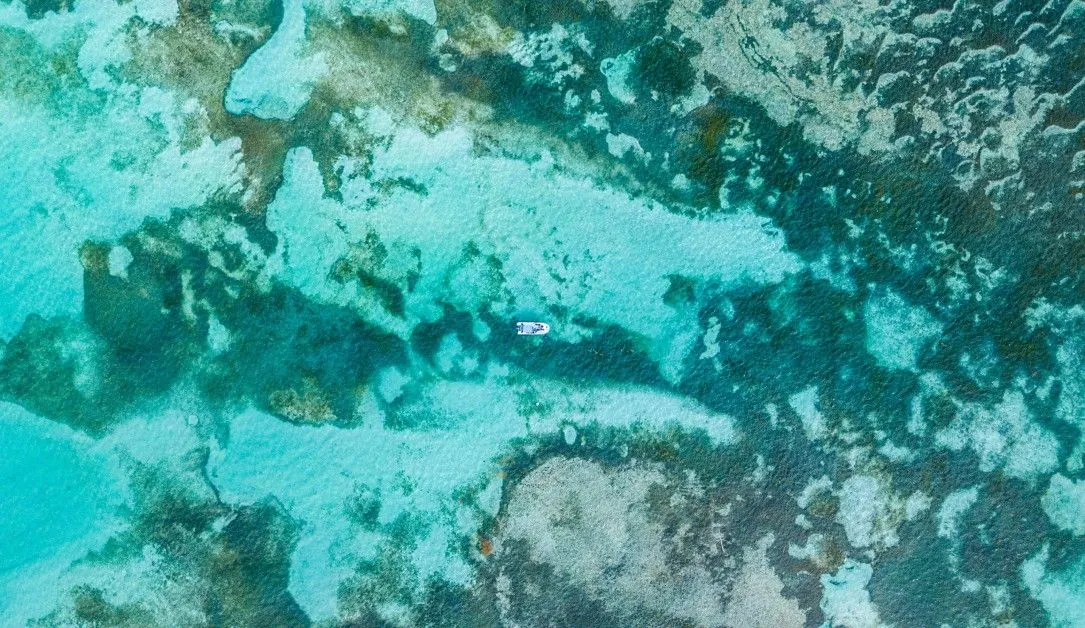Report: Beijing, Moscow step up efforts to control the Internet’s backbone
Authoritarian governments — particularly in Beijing and Moscow — are stepping up their efforts to buy or influence companies responsible for laying the undersea cables that shuttle online communications between countries and servers, according to a report released on Monday.
Submarine cables are the backbone of the Internet and the concern is that undersea cable companies either owned or influenced by Beijing and Moscow could be forced to compromise security by inserting backdoors or allowing intelligence agencies to monitor landing stations in order to intercept traffic.
According to the Atlantic Council’s “Cyber Defense Across the Ocean Floor: The geopolitics of submarine cable security,” the majority of global undersea cables, about 59 percent, are still deployed and maintained by private companies and a little less than 20 percent of the cables deployed around the world, as of the end of last year, are either made or maintained by state-owned or state-controlled entities. But that appears destined to change.
“There is just a huge expansion of submarine cables around the world,” Justin Sherman, the author of the report, told The Record. “In 2016, there were 15 new cables that went into service around the world. In 2020, the number of new cables that were deployed was 28, which is phenomenal growth and shows just how much more dependent we are on this infrastructure.”
According to Sherman, Chinese companies are planning some 44 different undersea cable projects this year alone. Some of the programs are part of Chinese President Xi Jinping’s $1 trillion Belt and Road Initiative, which aims to finance infrastructure projects in dozens of countries, and others are closer to home, such as projects to run Internet traffic through Hong Kong.
The Chinese companies entering the underwater cable space include a Who’s Who of the mainland’s telecom operators: China Mobile, China Telecom, China Unicom, and Huawei Marine all of which either own, maintain, or build part of China’s undersea cable network.
“China will have good prices but they have a fundamental problem,” said James Lewis, Senior Vice President and the Director of the Technology and Public Policy Program at the Center for Strategic and International Studies in Washington, D.C. “If you use China stuff, I think everyone knows, there’s a good chance they’ll spy on you. Do you feel comfortable with China having physical access over your cable access or your company network? The answer should be no.”
In Russia, companies like the state-owned Rostelecom have dropped undersea cables to connect outlying Russian islands to the mainland and Europe and the company’s CEO made clear that was just a start. In a meeting with Russian president Vladimir Putin, he said publicly that his company has ambitious plans for building up Internet infrastructure around the world. There are at least three Russian undersea cables set to be deployed this year, according to Sherman.
U.S. officials have already recognized what’s at stake. Last year, the Federal Communications Commission (FCC) denied a cable license for Pacific Light Cable Network, a submarine cable project that brought together Google, Facebook, a New Jersey-based telecom and a Hong Kong-based telecom owned by a Chinese firm.
The FCC and the Department of Justice objected to the project because of what they saw as a national security risk. The Justice Department said it was concerned that Beijing would use the network to collect information on Americans and might eventually try to divert traffic through Hong Kong in order to control and exploit data within it.
The focus on espionage opportunities under the seas isn’t theoretical. The U.S. and the United Kingdom, among others, have a long history of tapping undersea cables for information. Back in the 1970s, the National Security Agency launched Operation Ivy Bells which involved using attack submarines and divers dropping waterproof recording devices on underwater cables running near major Soviet naval bases in the Kuril Islands.
Every couple of weeks, divers would drop back down to the cables and retrieve the recording devices and the intelligence they captured. The operation went on for years until an NSA employee named Ronald Penton told the KGB about the program. He was arrested in 1985 and served 30 years in prison before being released in 2015.
Now a lot of that can be done virtually, without the divers, which is what worries officials. Tapping underwater cables is hard, exploiting landing stations where the data passes through is less so.
“It is easy to think about the Internet on an abstract level because of the cloud and cyberspace,” the Atlantic Council’s Sherman said. “But it still depends on routers and cables and that impacts how data goes around the world. This is important because if you have more data traveling through your cables or your country, you have more opportunities for espionage.”
Dina Temple-Raston
is the Host and Managing Editor of the Click Here podcast as well as a senior correspondent at Recorded Future News. She previously served on NPR’s Investigations team focusing on breaking news stories and national security, technology, and social justice and hosted and created the award-winning Audible Podcast “What Were You Thinking.”

